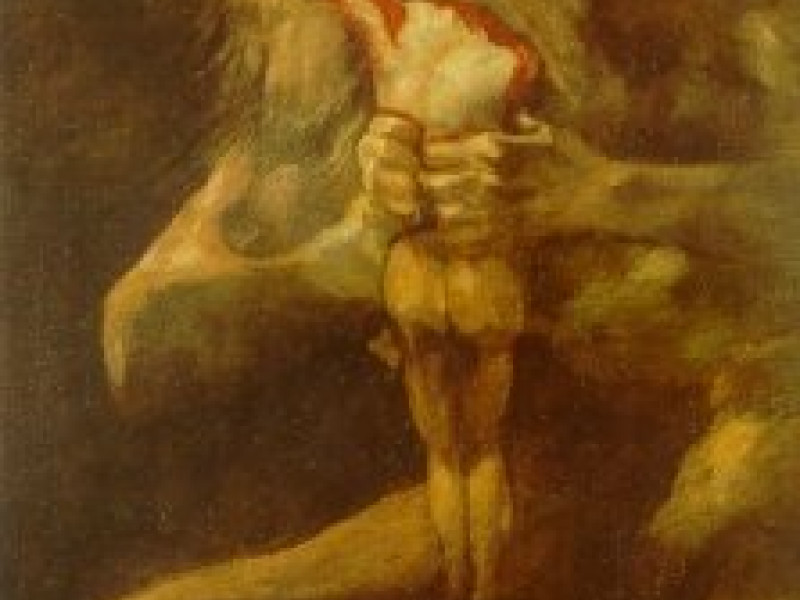Homeric Creation
In the Iliad, Homer only briefly alluded to the creation. Hera seduced Zeus at Mount Ida in the hope of turning the tide against the Trojans by lulling her husband to sleep. To seduce Zeus, Hera required aid from other gods.
First, she sought aid from Aphrodite, the goddess of love. Hera wanted to borrow Aphrodite's girdle, which would make her irresistibly seductive. Hera lied to Aphrodite saying that she wished to patch the relationship between Oceanus (Ὠκανωός) and Tethys (Τηθύς), who had raised her. In fact, she was using it in the hope of seducing Zeus. Hera said that "...to see Oceanus, from whom the gods arose, and Mother Tethys" (quoted from Robert Fitzgerald's translation, Book XIV 199).
She used Hypnos to lull Zeus to sleep. Hypnos boasted to Hera that he could even lull Oceanus to slumber, "...the primal source of all that lives" (Book XIV 258-61). However, Hypnos was reluctant to help Hera because the first time he helped her, he was almost thrown into the deep sea. Fearing Zeus' rage, Hypnos had to take refuge with his mother Nyx (Night). Powerful as Zeus was, the king of the gods feared the "all-subduing Night (Nyx)".
When she met Zeus, Hera lied to him when she mentioned regarding Oceanus and Tethys that she wanted to patch their relationship up, since they had not slept together in a single bed since they had last quarreled. Hera was saying the same thing that she said to Aphrodite a moment before. (Book XIV 301-304).
To Homer, Oceanus and Tethys were more ancient than the Titans; they were referred to as the World Parents (Creators), displacing Uranus and Gaea, or that of Cronus and Rhea. Oceanus had a stream that completely encircled the earth, which was a flat round disk. And Tethys was said to be the mother of the gods.
Homer was more interested about the war at Troy than about the Creation, so much was left unsaid.
By Jimmy Joe



